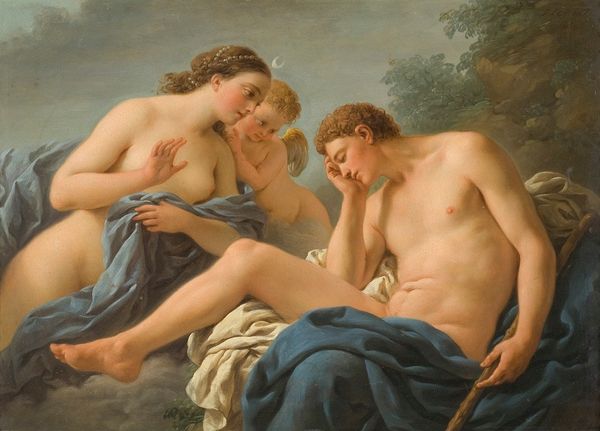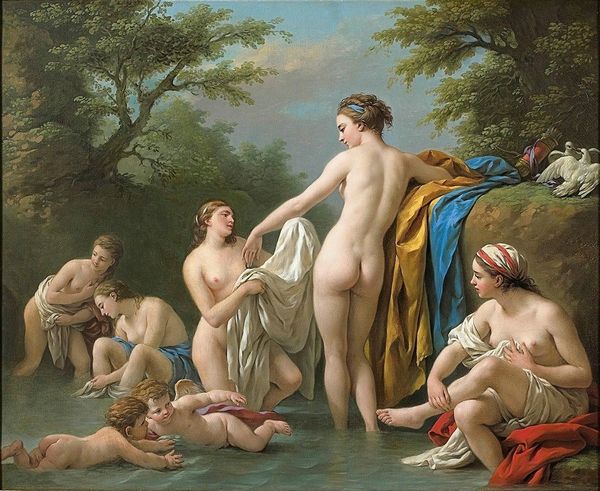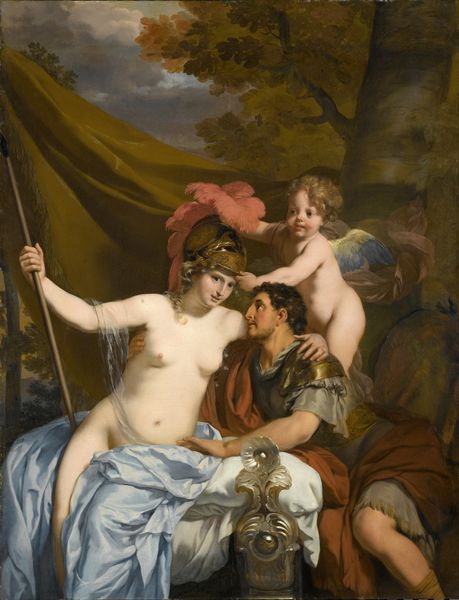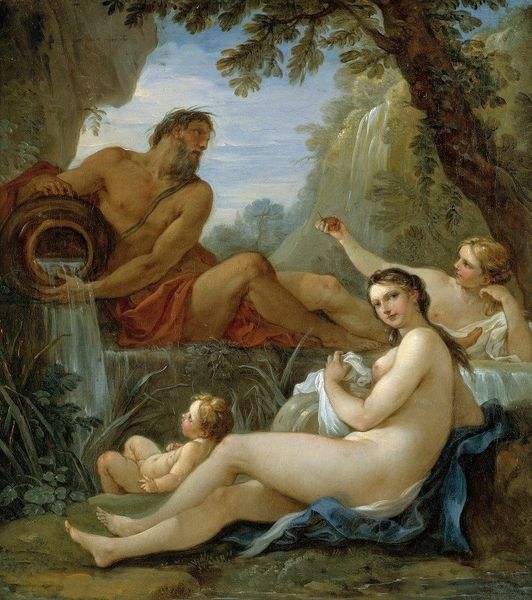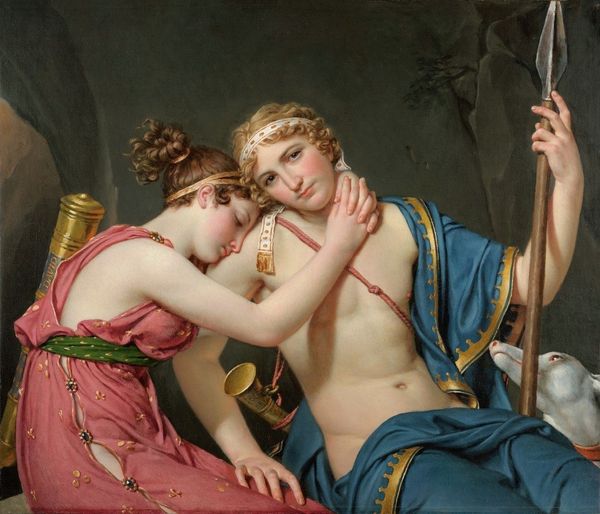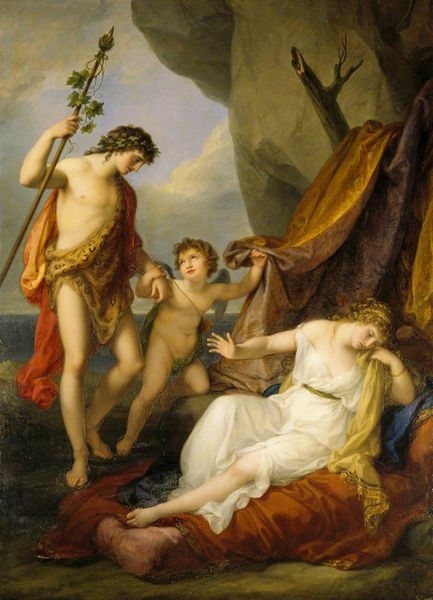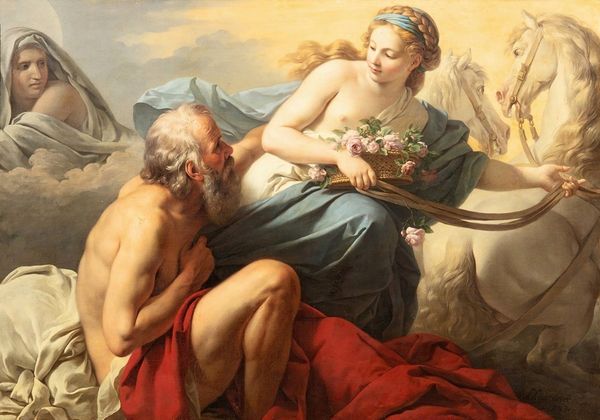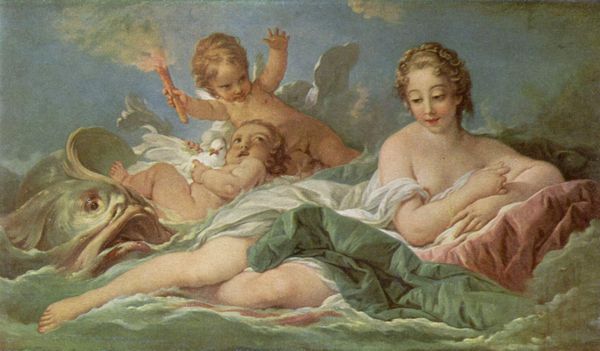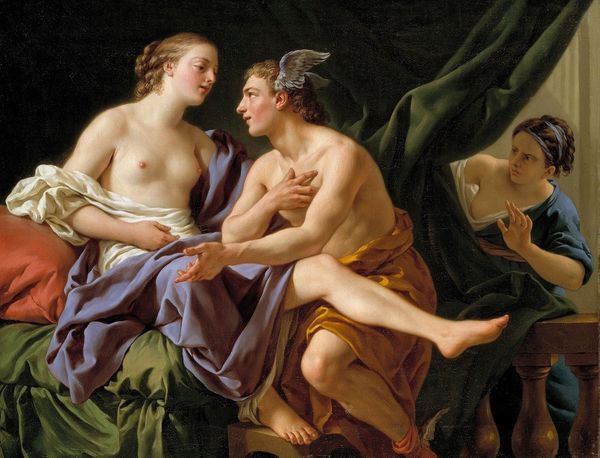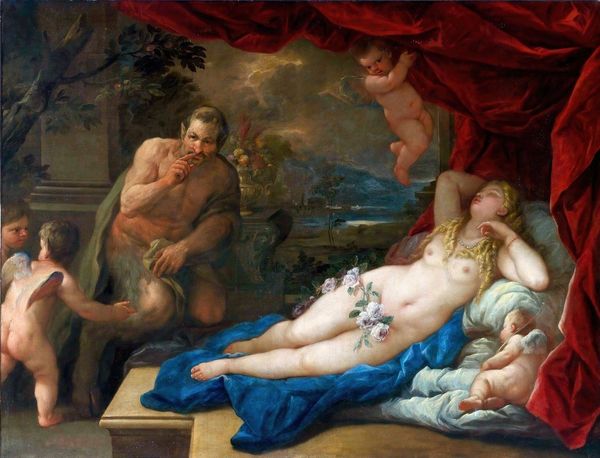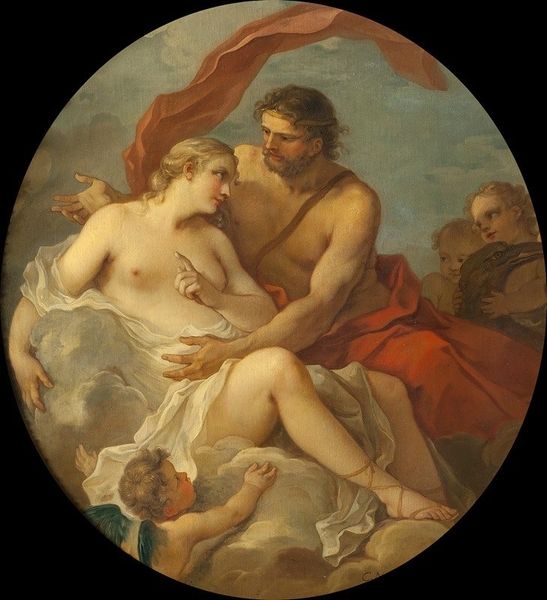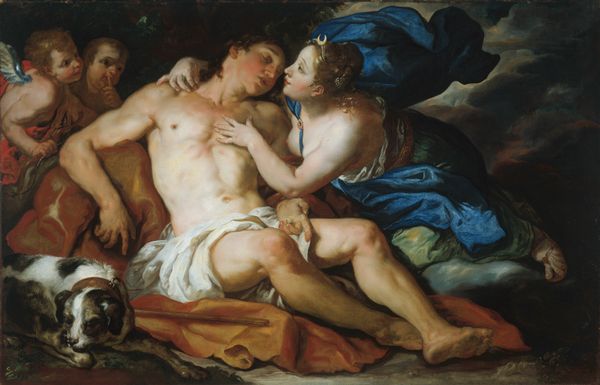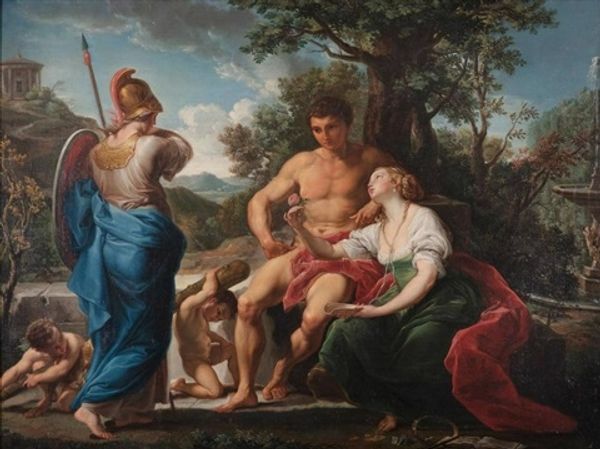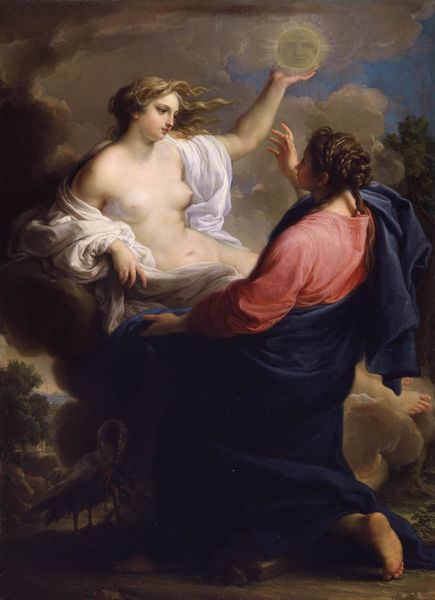
painting, oil-paint
#
allegory
#
painting
#
oil-paint
#
figuration
#
oil painting
#
mythology
#
history-painting
#
nude
#
rococo
Copyright: Public Domain: Artvee
Editor: Here we have "Bacchus and Ariadne," an oil painting dating back to 1768, created by Louis-Jean-François Lagrenée. It has a very dreamlike, almost ethereal quality to it. What do you see when you look at this piece? Curator: This painting is an excellent example of Rococo art, but I find myself drawn to how it encapsulates a very specific power dynamic. Look at Ariadne's posture; she's being embraced, ostensibly loved, but there's a palpable lack of agency in her gaze. Do you think that's reflected in the story it depicts? Editor: I see what you mean. Her eyes almost seem to be looking somewhere else, disinterested or perhaps even resigned to her fate. Does the mythological context add another layer? Curator: Absolutely. Remember, Ariadne was abandoned by Theseus and then "rescued" by Bacchus. This narrative carries centuries of patriarchal assumptions. Lagrenée isn't merely illustrating a myth; he’s presenting a moment ripe for feminist interpretation, ripe for an interpretation of sexual politics in 18th century France. The cherubic figure of Cupid aiming his arrow seems to almost mock the very real complexities of the situation. It's a commentary, intended or not, on the roles assigned to women and the subtle forms of coercion disguised as affection. Editor: So it’s not just a beautiful scene but potentially a visual commentary on power imbalances inherent in relationships, even mythical ones? Curator: Precisely. It forces us to consider the narratives we perpetuate and the gazes through which we view them. Art is not created in a vacuum. This piece shows this connection between gender politics and myth very powerfully. Editor: This has completely changed how I see the painting. It's much more complicated than I initially thought! Curator: It's through these conversations that we make art relevant and connect with the complex stories art has to offer.
Comments
No comments
Be the first to comment and join the conversation on the ultimate creative platform.
